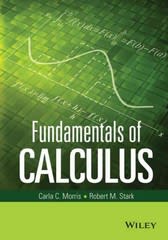Question
The following simple linear regression representing the relationship between RST and TOTWRK was specified: = 0 + 1 + OLS ESTIMATOR Model 3: OLS, using
The following simple linear regression representing the relationship between RST and TOTWRK was specified:
= 0 + 1 +
OLS ESTIMATOR
Model 3: OLS, using observations 1-706
Dependent variable: RST
coefficient std. error t-ratio p-value
--------------------------------------------------------
const 3586.38 38.9124 92.17 0.0000 ***
TOTWRK 0.150746 0.0167403 9.005 1.99e-18 ***
Mean dependent var 3266.356 S.D. dependent var 444.4134
Sum squared resid 1.25e+08 S.E. of regression 421.1357
R-squared 0.103287 Adjusted R-squared 0.102014
F (1, 704) 81.08987 P-value(F) 1.99e-18
Log-likelihood 5267.096 Akaike criterion 10538.19
Schwarz criterion 10547.31 Hannan-Quinn 10541.71
1. A-Interpret the estimated values of (i) the intercept and (ii) the slope you obtained in Part (1) above. What do each of the two coefficients represent? Does the estimated intercept make sense? Briefly explain why or why not. Does the estimated slope make sense? Briefly explain why or why not. B-Furthermore, based on your interpretations, calculate the amount of daily rest time (in hours) for a person with zero TOTWRK.
2. By observing the GRETL output in Part (1) above, provide a detailed explanation of the coefficient of determination. Based on your analysis, is this a good model? Why or why not?
3. Construct the 95% confidence interval of the slope coefficient you obtained in Part (1). Use the estimated confidence interval to test if the slope coefficient is significant or not. Interpret your findings.
Step by Step Solution
There are 3 Steps involved in it
Step: 1

Get Instant Access to Expert-Tailored Solutions
See step-by-step solutions with expert insights and AI powered tools for academic success
Step: 2

Step: 3

Ace Your Homework with AI
Get the answers you need in no time with our AI-driven, step-by-step assistance
Get Started


